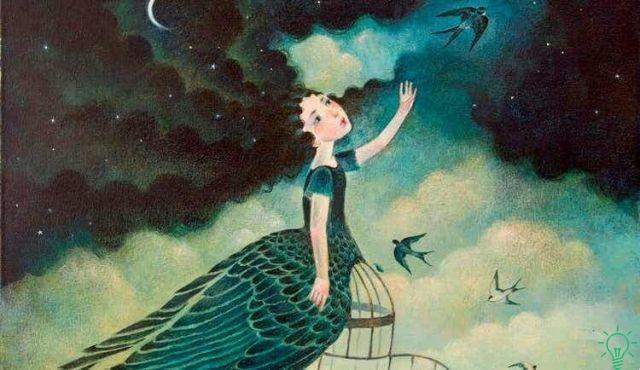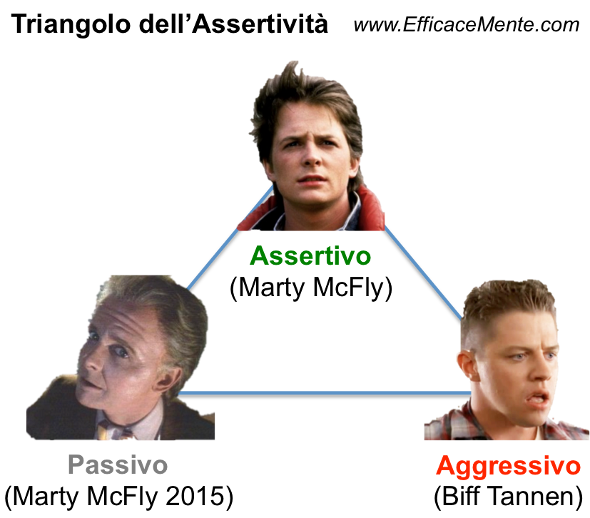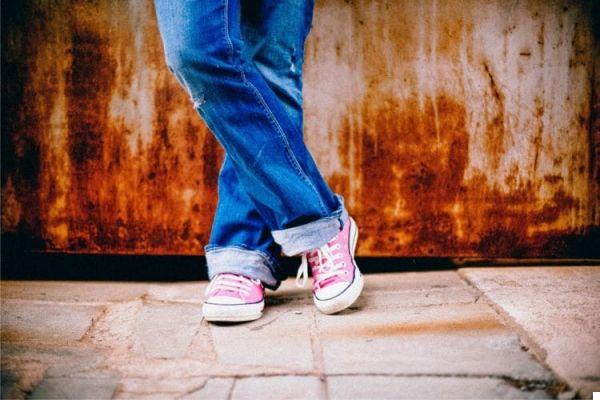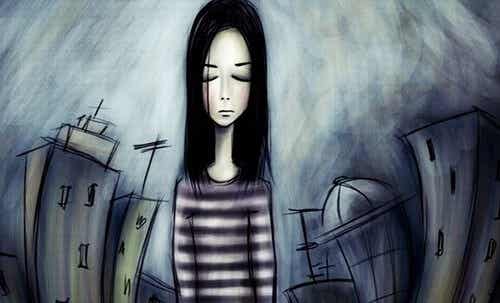Self-love allows us to heal wounds and start our life over. It is an antidote to apathy and self-contempt. How can we cultivate it?

Last update: 01 November 2020
"How much do I love myself?". You may not have asked yourself this question or never thought about it. It doesn't matter, it's more normal than you imagine. We often have a bad habit of forgetting about ourselves; it is as if we did not exist, as if we were invisible to our eyes. It seems that taking care of ourselves is out of our priorities. We could say that self-love has no place in our life.
How do you treat yourself? Have you ever thought about it? The way we talk to each other, the conception we have of our person and, ultimately, the way we evaluate ourselves influences our mood. The problem is that we rarely think about all of this.
We tend to live on tiptoe without delving into how much what happens around us affects us. It's as if we don't care about our personal well-being. The problem is that, with the passage of time, the burden of daily life increases day by day and, if we neglect ourselves, we can find ourselves wrapped in a gray fog that clearly does not allow us and that makes us suffer.
Although unaware, living disconnected from our inner self has consequences. We can notice this by observing the story of the protagonist of the short film present at the end of this article. The point is, how can we free ourselves from the cobwebs of automatisms? How can we prevent negative labels and messages about us from affecting our life?
The weight of the messages we receive
From an early age, we receive different messages about who we are, what we should feel and how we should behave. Parents, relatives, teachers, friends… everyone has something to tell us. While most of the time they have good intentions, those words don't always have a positive effect or are appropriate for us.
You have probably heard phrases like “It's impossible! Stay with your feet on the ground ”,“ You are wasting time, concentrate on what is important ”,“ You will not make it ”,“ You are a dreamer, reality is different ”. In one way or another, the messages we receive influence the way we are, especially as children. Some of these messages, in fact, shape our identity, while others function as impositions that make us feel guilty if we do not respect.
Sometimes that sense of guilt creates a wound and a rejection of ourselves. It leaves marks so deep and painful that they turn into a deep feeling of self-contempt; the result is an underestimation of oneself and a lack of self-love. Growing up with these wounds creates a very painful reality.
"It took me a long time to learn not to judge myself through the eyes of others."
-Sally Field-
The phrases of our inner critic
Feeling rejected by others, and ultimately by oneself, generates a mental trap activated by the inner critic, that is, that voice that comes from within and that is continually dedicated to judging how we think, feel and act. To this end, the critical ego resorts to any strategy: confrontations, destructive criticisms, various denigrations, etc.
“I shouldn't have said those words”, “I should have acted differently”, “I can't do anything”, “I'm a mess”, are just a few examples of phrases uttered by our inner critic. The problem is, we never question it.
We have integrated these messages to the point of giving you absolute truth value and, in fact, everything we do confirms it. If we don't consider ourselves valid for a job, for running a group, or for writing, we probably won't even try or boycott ourselves to stifle the slightest hope we have in our minds.
Self-love and the influence of social media
Today the continuous comparison with others is favored by social networks, that create alternate realities that can trap us if we're not careful. Spending hours and hours immersed in this world of simulated appearances and feelings can make us believe that it is the only reality that exists.
The truth is that we are faced with a showcase behind which each person can check the image of himself that he wants to show to others. What appears on social networks does not always correspond to reality.
According to psychotherapist Sherrie Campbell, social networks can create a false illusion of belonging and connection with others that encourages us to give more importance to that imaginary world.
If we despise and reject ourselves, or if we have a negative image of ourselves, social networks will only increase this perception. They provide us with false evidence that will confirm how boring our life is, how little we have fun and how lonely we are.
It is not easy to follow the rhythm of life that people show on social networks. A study from the University of Pittsburgh, Pennsylvania (USA), states that consulting social networks too often generates envy and the distorted belief that others have a much more original, happy and interesting life than ours.
How can we see, we are experts in mistreating ourselves, but above all in comparing our life with that of others without realizing that this attitude is absurd. Why waste time comparing when each person's conditions, characteristics, perspectives and experiences are different?
The protagonist of the short film Overcomer is an example of how social networks can be a double-edged sword, especially if some wounds of the past are still open. Whoever bears the weight of a wound filters reality through it.
The mind often operates based on cognitive distortions (wrong ways of processing information or misinterpretations) such as selective abstraction, personalization, labeling or emotional reasoning. Social networks promote these mechanisms.
"In the past you were what you had, now you are what you share."
-Godfried Bogaard-
Self-love and reunion with oneself
What to do to stop the inner critic? How to heal our wounds? Is it possible to stop the mental labyrinth that traps us in self-pity? It seems that the protagonist of our short film has finally discovered the secret ingredient: self-love.
"You are amazing when you allow yourself to be yourself."
-Elizabeth Alraune-
It is not easy to reconcile with oneself, especially when most of the time we have been treated badly. It is very difficult after years of negative self-criticism to suddenly, as if by magic, start loving each other again. It takes patience, commitment, acceptance and, of course, the willingness to find a compromise with ourselves.
Embracing our wounds is a source of suffering, especially in the beginning. In addition to this, it takes a lot of courage and you have to find the ability to forgive and to forgive yourself. Being able to love yourself, when we need it most, requires a lot of strength and commitment. For this reason, we need to keep some strategies in mind.
Strategies for regaining self-love
- Believe yourself precious. We are much more than our mistakes, failures and the results we have achieved. We are a limited edition that no one can steal from us. Maybe we grew up without realizing it and while it's hard to believe, it's never too late to look in the mirror and start seeing your potential.
- Practice self-compassion. Addressing and respectfully accepting our mistakes and limitations is essential to moving forward. Being confused is an opportunity to learn something, and judging ourselves is a habit that doesn't help us change our perspective. According to an article published in the journal Personality and Social Psychology, self-compassion makes it easier to achieve personal fulfillment.
- Forgive. Forgiveness is an act that frees us from ties with the past. Forgiveness is an opportunity to heal our resentment, the one that has caused us so many problems at one point. We must not only forgive others, but also ourselves for the way we have treated each other.
- Living with intent. Being aware of the present moment is a way to let go of the past and avoid being overwhelmed by worries about the future. Living everyday life, savoring what happens in every moment, engaging and taking care of ourselves are all valid protection mechanisms.
- Disconnect to reconnect with yourself. We are in the era of hyper-connectedness, but it is advisable to disconnect from the intangible digital world to connect with what we have in front of our eyes and, of course, with the people around us. In this way, we will prevent the theater of appearances from dominating our lives.
"Love" is a miracle cure. Loving ourselves works wonders in our life. "
-Louis L. Hay-
Conclusions
As you can see, self-love is built step by step, it is delicately woven and watered every day. It is that light that we all have inside, but which is sometimes difficult to make shine. Self-love is the basis of our well-being, the embrace that protects us and the balm that heals our wounds. Here is the short film Overcomer.


























